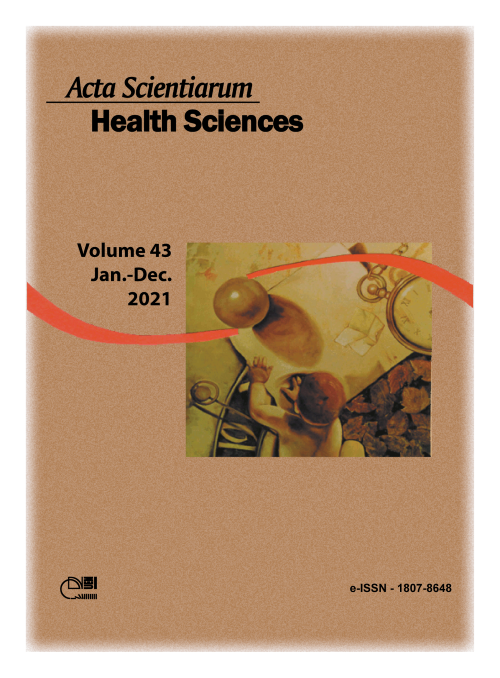Perceived self-esteem, resilience and stress of students entering a nursing degree
Abstract
This study aimed to evaluate perceived self-esteem, resilience and stress of students entering a nursing degree. Cross-sectional study with 122 students (104 women and 18 men) of the first semester of a private institution in Distrito Federal. Evaluations were performed in March 2019. Rosenberg Self-Esteem Scale, Resilience in Higher Education and Perceived Stress, as well as a socio-economic questionnaire were used. All procedures were carried out using the software Statistical Package for the Social Sciences (SPSS) and GraphPad Prism 6. The comparison of perceived stress between groups demonstrated that less stressed individuals were younger (19.1 ± 1.9 years old vs 22.5 ± 7.4; p = 0.030) and presented higher resilience scores (147.0 ± 16.3 vs 125.0 ± 22.5; p < 0.001). The comparison of self-esteem tertiles showed that individuals with better self-esteem were more resilient (146.0 ± 17.65 vs 133.85 ± 24.84; p = 0.037). Spearman's correlation demonstrated a negative relation between resilience score and perceived stress (r = -0.415 p = < 0.001). Students had already entered university presenting psychical deficits, such as increased stress and low self-esteem and resilience.
Downloads
DECLARATION OF ORIGINALITY AND COPYRIGHTS
I Declare that current article is original and has not been submitted for publication, in part or in whole, to any other national or international journal.
The copyrights belong exclusively to the authors. Published content is licensed under Creative Commons Attribution 4.0 (CC BY 4.0) guidelines, which allows sharing (copy and distribution of the material in any medium or format) and adaptation (remix, transform, and build upon the material) for any purpose, even commercially, under the terms of attribution.
Read this link for further information on how to use CC BY 4.0 properly.
























5.png)







